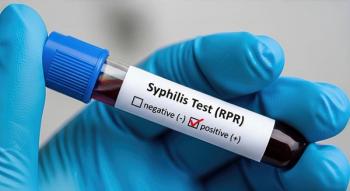
HPV home testing: First US trial
Published in JAMA Network Open, results from the first US trial of home-based sampling for human papillomavirus show that mailing kits to underscreened women could increase cervical cancer screening.
Results from the first US trial of home-based sampling for human papillomavirus (HPV) show that mailing kits to underscreened women could increase cervical cancer screening. Published in
Population-based randomized clinical trials (RCTs) of the kits in other countries with organized cervical cancer screening programs have shown that they can increase participation in screening. The Home-Based Options to make Cervical Cancer Screening Easy (HOME) study is the first RCT involving the kits to be performed in the United States.
Methods
Nearly 20,000 women aged 30 to 64 participated in HOME, which was conducted by investigators from
The researchers assessed CIN2+ detection within 6 months of screening and treatment within 6 months of CIN2+ detection. The secondary outcome was screening uptake within 6 months of randomization.
The women in the study had been enrolled in Kaiser Permanente Washington for 3 years and 5 months or more and had not had a Pap smear during that time; had a primary care physician; and had not undergone hysterectomy. Half were randomized to usual care and half to usual care plus a mailed HPV self-sampling kit.
Usual care included a birthday letter reminder, clinician-targeted automatic alerts about patients overdue for Pap testing, and primary care team communication. The intervention group received usual care plus a mailed self-sampling kit with a prepaid return envelope addressed to a laboratory in the health system. Communications sent were an invitation letter, research information sheet, and educational materials on how to self-collect and return the sample. In keeping with Kaiser Permanente’s outreach protocols, women who did not return the kits within 3 weeks received up to three reminder calls. Samples were tested with the Cobas 4800 HPV Test.
Results
Based on enrollment from February 25, 2014 to August 29, 2016 and follow-up through February 26, 2018, the authors note that CIN2+ was detected in 12 participants in the intervention group versus eight in the control group (relative risk [RR], 1.49; 95% CI, 0.61-3.64) and 12 cases were treated vs seven in the control group (RR 1.70; 95% CI, 0.67-4.32). Screening uptake was higher in the women given the kits (26.3%) than the ones who received just usual care (17.4%) (RR 1.51; 95% CI, 1.43-1.60).
Conclusions
“Mailing HPV kits to underscreened women increased screening uptake compared with usual care alone,” the authors concluded, “with no significant differences in precancer detection or treatment.” Their results, they said, “support the feasibility of mailing HPV kits to women who are overdue for screening as an outreach strategy to increase screening uptake in US health care systems.”
Strategies employed during the trail to support use of the kits which the authors recommend for other health care systems contemplating using a similar approach include (1) specific guidance for clinicians in electronic test results; (2) monitoring clinician/patient communications on the recommended follow-up plan; and (3) sending electronic messages to clinicians when follow-up plans are not communicated.
Newsletter
Get the latest clinical updates, case studies, and expert commentary in obstetric and gynecologic care. Sign up now to stay informed.








